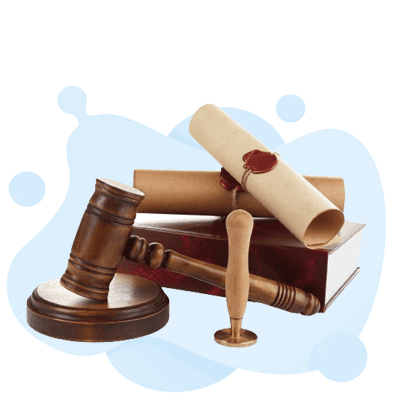
Welcome to our definitive NJ Notary Exam Preparation Guide. If you are aiming to become a Notary Public in New Jersey, you are embarking on a significant professional milestone. Success in the New Jersey Notary exam requires thorough preparation and a deep understanding of the exam’s content and structure.
In this guide, we will offer key insights and effective strategies to enhance your study routine and ensure you are well-prepared for the NJ Notary exam. Our goal is to provide you with the tools and resources needed to approach the exam with confidence.
To excel in the NJ Notary exam, it is crucial to understand its format, content, and structure. This knowledge will help you tailor your study plan and focus on the essential areas.
Format of the NJ Notary Exam
The NJ Notary (New Jersey Notary Exam) typically consists of multiple-choice questions designed to test your knowledge of notarial duties, state regulations, and ethical practices. The exam is usually timed, adding a layer of challenge to the process.
Content Covered in the NJ Notary Exam The exam encompasses a range of topics including:
Understanding these areas is critical for effective performance in your notarial duties.
Exam Structure The NJ Notary Exam is organized into several sections, each focusing on different aspects of notarial duties. Knowing the structure of the exam will help you strategize your study efforts more effectively.
Exam Section Breakdown
| Section | Percentage of Exam |
|---|---|
| Notarial Acts and Procedures | 30% |
| New Jersey Notary Laws and Regulations | 30% |
| Ethical Standards and Practices | 20% |
| Document Verification and Handling | 20% |
To optimize your preparation for the NJ Notary exam, consider the following strategies:
1. Develop a Study Schedule A structured study schedule is essential for covering all necessary topics. Here’s how to create an effective study plan:
2. Utilize a Comprehensive Study Guide Select a study guide that provides thorough coverage of the exam content. Key features to look for in a study guide include:
3. Practice with Sample Questions Practicing with sample questions helps you get familiar with the exam format and identify areas for improvement. Here are tips for effective practice:
4. Simulate Exam Conditions Using practice tests that mimic the actual exam environment can help reduce test anxiety and improve performance. Practice tests allow you to:
In summary, thorough preparation is key to success in the NJ Notary exam. By understanding the exam format, using effective study strategies, and leveraging recommended resources, you can enhance your readiness and confidence.
Start your preparation today with a well-structured study plan, a comprehensive study guide, and consistent practice. With dedication and the right resources, you can confidently approach the NJ Notary exam and achieve your goal of becoming a Notary Public in New Jersey.
FAQ
1. Why is practicing with sample questions important? Practicing with sample questions helps you familiarize yourself with the exam format, identify areas of weakness, and build confidence. It also provides insight into the types of questions you will encounter on the actual exam.
2. How can the NJ Notary Exam Preparation Guide assist me? The guide offers detailed information on exam content, study strategies, and resources. It helps you create a study plan, utilize effective study materials, and practice with sample questions to improve your performance.
3. Are online practice tests available for the NJ Notary exam? Yes, online practice tests are available and provide a convenient way to simulate the exam environment. They offer instant feedback and help you track your progress.
4. How should I analyze my performance on practice tests? Review each question and answer explanation thoroughly. Identify patterns in mistakes and adjust your study plan to focus on weaker areas. Consistent review and targeted practice will improve your understanding and performance.
5. What additional resources can support my NJ Notary exam preparation? Additional resources include study guides, online platforms, educational institutions, and official websites. Utilize a mix of these resources to enhance your knowledge and exam readiness.